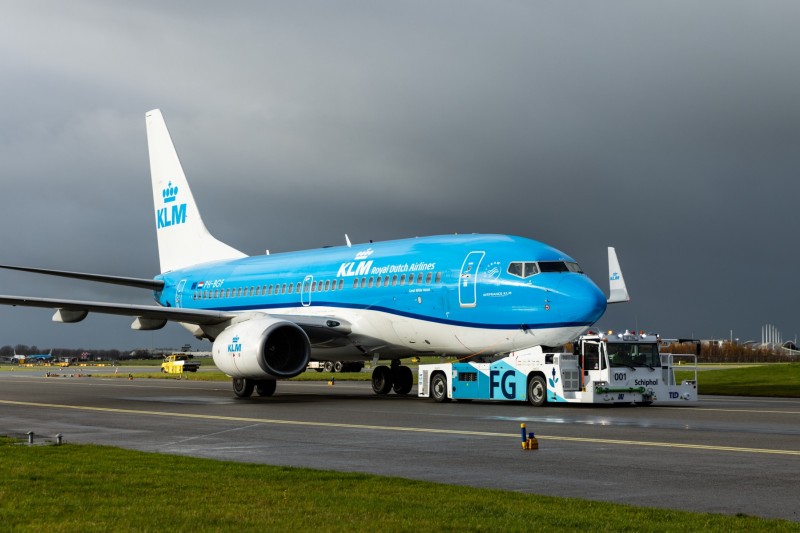The trial forms part of the ALBATROSS project, an initiative subsidised by the European Commission and for which Schiphol purchased two Taxibots earlier this year. Using the Taxibot makes it possible to start the aircraft’s engines much later and therefore not initially at the gate. In the coming period, additional small-scale trials will also be carried out involving pushbacks and towing empty aircraft.
KLM assumes its responsibility for making aviation more sustainable. We work in close cooperation with all our partners to arrive at innovative solutions. It’s important for sustainability to form part of everything we do at KLM, be it in the cockpit or cabin, or on the ground. We expect sustainable taxiing to reduce fuel consumption during taxiing by between 50% and 85%. Such trials are very important because they enable us to better determine how we can integrate sustainable taxiing in our daily operations.
Follow-up plans
According to the original plan, trials to and from the Polder Runway would now be in full swing. Based on a modified plan, studies, simulations and tests will be carried out over the next 18 months. These are aimed at further testing, introducing and scaling up new procedures for sustainable taxiing to and from runways including the Polder Runway from mid-2024.
Sustainable taxiing as the new standard
Together with LVNL, AAS, Transavia, Corendon Dutch Airlines, TUIfly and ground handlers dnata, Swissport and Viggo, KLM is working towards achieving fully sustainable airport taxiing operations by 2030. The Dutch Ministry of Infrastructure and Water Management supports the initiative. The trials form part of European initiatives undertaken by the ALBATROSS consortium and its successor: HERON. These subsidised projects aim to make aviation more sustainable.
Tags: KLM
